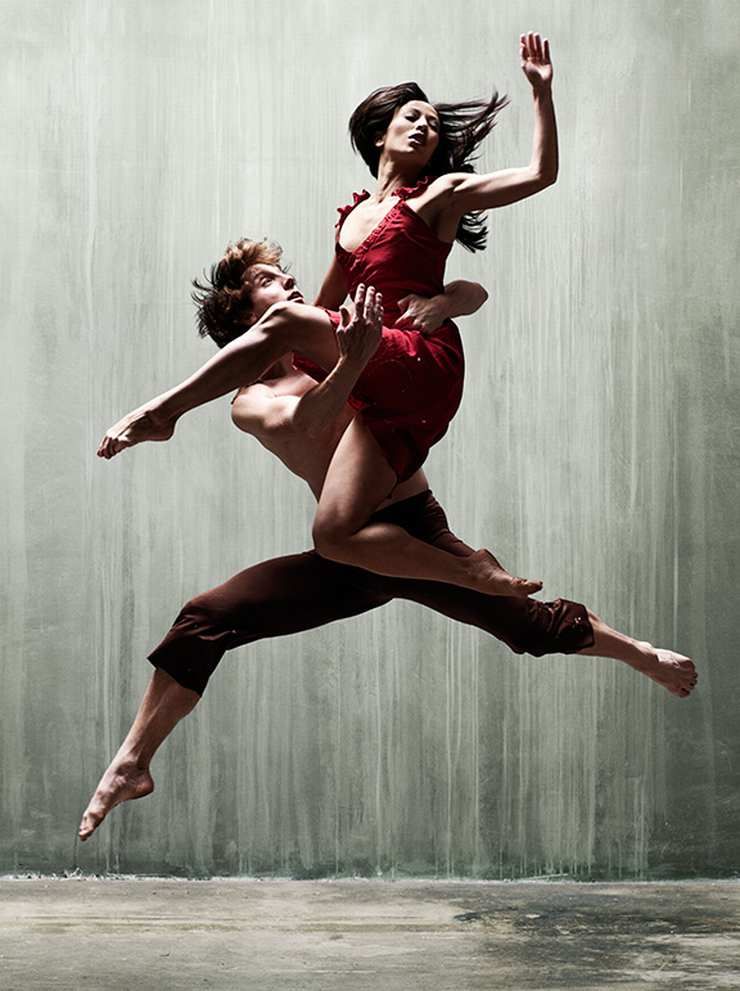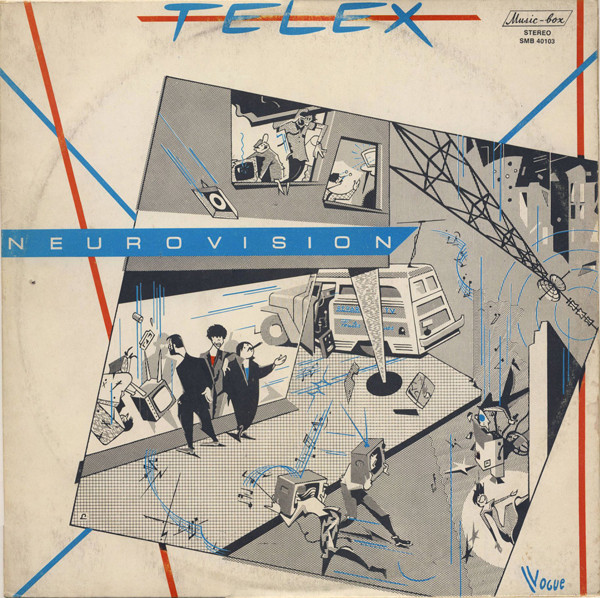How to become a dancing bear
Newcomers-Info
Face it, we were all newcomers at one time.
In an effort to make newcomers feel at home, this Newcomers page is to familiarize new dancers with what to expect at a typical Dancing Bears event.
For a Visual, play the instructional YouTube videos showing at the bottom of the Page!
The Dancing Bears always welcomes newcomers! We enjoy a rich history of dancers who have been members for as many as twenty years, as well as the full range of members to brand new dancers. Newcomers, experienced or not, are part of what allows for the richness of experience.
Annually, we schedule a Newcomers Dance where admission is free to all new dancers. This is a time to encourage friends to try dancing, and to welcome others in the community who have come to check us out.
Types of dances: you will probably see four basic types of dances here: contra, square, round, and couple. Contras are danced in two lines, which face one another. Depending on the number of people at the dance, there may be two or three facing contra lines. The men will usually be on one side and the women will be facing them on the other side. Square dances involve four couples, each of which forms one side of a square. Round dances are danced by the whole group in one figure and are a great "icebreaker," for usually you will dance with every other partner in the figure. Couple dances are those danced by individual couples: waltz, polka, two-step, and hambo. A basic rule for all dances is for the lady of each couple to be on the right side of the gent.
Choosing partners: you can dance with one partner all evening, but most people change partners after each dance. Feel free to ask anyone in the hall to dance--inexperienced dancers can ask betters dancers; women can ask men; some women enjoy leading and ask other women to dance; you may even dance with someone you don't know yet. It's a good way to meet new friends and learn about dancing.
Getting into sets: the caller will announce what type of dance will be next. Join a contra line at the end farthest from the music. Join a square at any open position. To complete a square, hold up the appropriate number of fingers to let others (and the caller) know how many more couples you need. It is usually easier to hear the caller and band closer to the stage, but dance in different places in the hall. You'll meet more people that way and will find that the acoustics vary from one spot to another.
Walk-through: each dance (with the exception of couple dances) is walked through before it is danced. During the walk-through, the caller will explain the main figure and any tricky sequences. To help the caller, please remain quiet and attentive. Even if you know the dance, don't walk through the dance ahead of the caller's instructions: it is confusing for both the caller and nearby dancers. Don't use this time to instruct your partner on the fine points of dancing or catch up on the skiing conditions.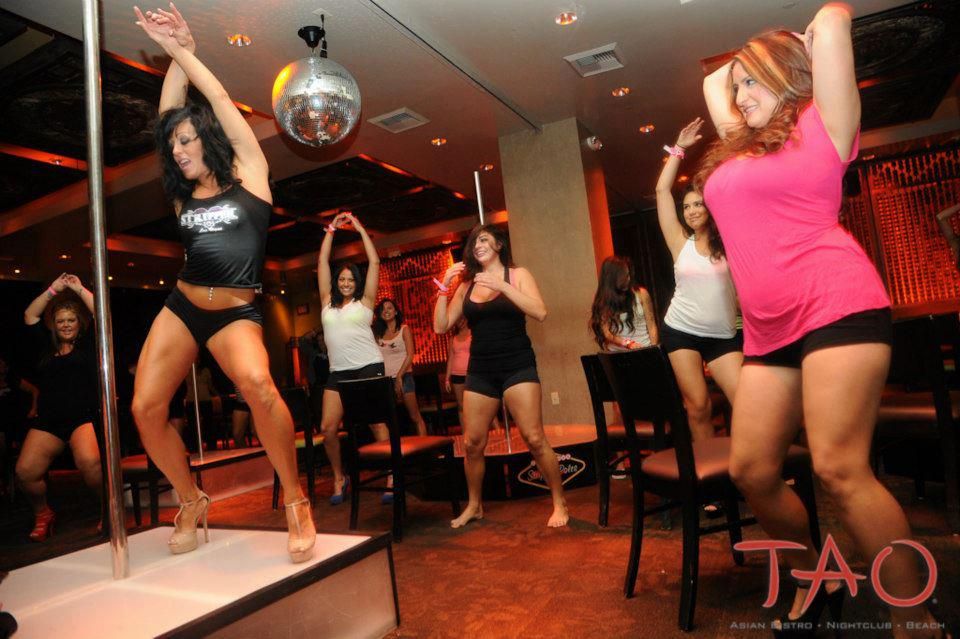 We often do two dances each time we are in a square set, so keep your partner and stay in place after the first dance is completed. If you become confused during the walk-through, please raise your hand immediately and ask the caller to explain whatever is confusing you.
We often do two dances each time we are in a square set, so keep your partner and stay in place after the first dance is completed. If you become confused during the walk-through, please raise your hand immediately and ask the caller to explain whatever is confusing you.
While dancing: use a light, walking step to the music, rather than skipping or hopping. Dance with the others in your set: that is, give weight on the allemandes (hand-turns), smile and look at your partner, help those who become confused. Hold hands gently. Dance with consideration, friendliness and joy. Some dancers modify the standard dance figures with extra turns and twirls. This is fine, so long as these variations don't confuse or inconvenience others, or cause someone to be late or in the wrong position for the next movement. If you get confused, regroup and try to start again. Going at a "double time" to try to catch up rarely works. "Better never than late!" After each dance, thank your partner and those with whom you've danced. If you wish, you may choose to applaud the music or the caller. Talk to the caller during the break if you have any questions about a particular dance, a dance figure or dancing in general.
If you wish, you may choose to applaud the music or the caller. Talk to the caller during the break if you have any questions about a particular dance, a dance figure or dancing in general.
General comments: direct questions and comments about Dancing Bears or the running of dance to the Dance Manager or Honcho. Someone sitting at the door can tell you who that is. Our halls generally prohibit smoking and alcohol use and require that children be supervised at all times. Please honor these requirements.
Become a Bear: it's easy! A $15 annual fee brings you mail notice of upcoming events and reduced admission to dances, not to mention the good feeling of supporting a healthy form of socializing and exercise in the community. To join, see the people at the front door. Dancing Bears is a non-profit organization, and is always looking for volunteers. Talk to the Dance Manager if you are interested.
Welcome . . . We're glad you came!
How My Life as a Dancing Bear Inspired a Career Book
| It was a story that needed to be told. The decision to write a business advice book came about 15 years after I left the circus. I was living in Southern California and earning a living as a part of the special events industry-I produced entertainment for corporate events. My Los Angeles-based company, Corporate Concerts, Inc., was profitable and well known in the industry. And as a business physically located in Hollywood, I had numerous celebrities as my clients. Ah, the stories I can tell of the behind the scenes shenanigans that happen in the entertainment business. As so often happens, when things seem to be rolling along smoothly, you hit an unexpected bump in the road. I enjoyed working on the party side of special events and didn't want to change industries if I didn't have to. So I considered the aspects of working with entertainers that could still be profitable for me in events. But nothing seemed to make money sense. After careful review of my skills and talents, relevant to the corporate meetings and events industry, I decided to be a corporate speaker within the educational side of events. Every convention is comprised of meetings by day and parties by night. Every speaker needs a tangible credential. The title came from people I met on the road with the circus. In every city I promoted, with every person to whom I introduced myself as a representative of the circus, the response was always the same: "My office is a 3-ring circus every day." The subtitle, "Must I Take Orders from Clowns?", came to me because I'm a justice seeker. As a justice seeker I have certain beliefs in the integrity of the employer/employee relationships. One of the fundamental aspects of this relationship is that is has to be equally balanced. Funniest thing about the circus business is that it is organized, efficient, comprised of very committed people, and operates within a system of teamwork. It's not the haphazard metaphor we attribute to circus life. The experiences I had as an employee of the Clyde Beatty-Cole Bros. Circus transformed me into the successful businessperson I am today. I wanted to share those business philosophies and techniques with ladies and gentlemen, and working professionals of all ages. |
Dancing Bear | Jews and Jewry
Rabbi Aryeh Leib - "Zeid's Spoiler" - before becoming the famous Tzadik and miracle worker, spent seven years wandering from city to city and from village to village. He endured many hardships and lived in dire poverty. It was one of ways to cleanse his soul. But he had another reason to choose this difficult life; he wanted to see Jews in small towns and villages and tried to help them in some way.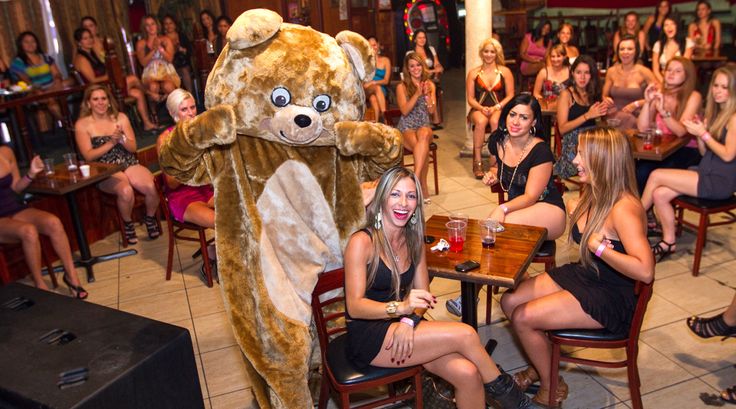
Once, having come to some village, he went to a tavern, but it turned out to be closed. From a neighbor, not a Jew, he learned that the landowner had put the innkeeper in jail for non-payment of rent.
Rabbi Arye Leib learned that another Jewish family lives in this village. Not wasting time, he hurried to them in order to learn more about the poor innkeeper.
When he approached the house of a village Jew, he invited him in and accepted very warm. Rabbi Arye Leib saw a house full of children and offered to the owner - his name was Shmuel - that if he allowed him to stay, he would gladly give lessons for his children in exchange for food and bed. The Rabbi assured Shmuel that he was good. teacher.
Shmuel was happy to accept this offer.
Having agreed, Rabbi Arye Leib began to ask the owner about the poor innkeeper. He learned that the Polish landowner, like many of them, hated Jews, but did not touch the innkeeper as long as he paid him the rent. However, as only the innkeeper was late with payment, the landowner grabbed him and threw him in jail. Not Satisfied with this, he closed the tavern and, being a cruel man, threw away his wife and children, while saying that he would keep her husband in prison until the full amount of the money is paid.
However, as only the innkeeper was late with payment, the landowner grabbed him and threw him in jail. Not Satisfied with this, he closed the tavern and, being a cruel man, threw away his wife and children, while saying that he would keep her husband in prison until the full amount of the money is paid.
“May the Almighty have pity on these unfortunates,” added Shmuel with deep sigh.
"Do you know how much the innkeeper owes him?" Rabbi Aryeh asked Leib.
“No. But I think it's a pretty big amount."
"Are there Jews here who could help?"
"Very few Jews live in this place, and they are all very poor." Then, After a pause, Shmuel sadly added: “It’s not enough trouble for us, so now the birthday of the landowner is approaching ... ".
"What does the innkeeper have to do with it?"
“Well, you see, the landowner always arranges a big holiday on the occasion of his birthday. Every year he invites all his friends, landowners, homeowners both near and far.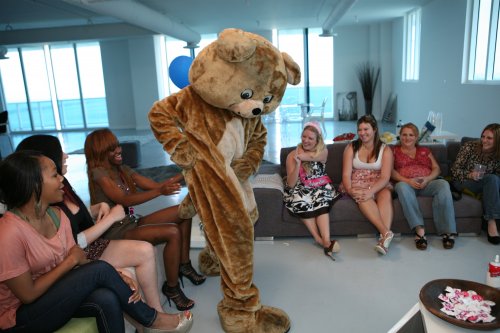 The main entertainment on this holiday - dance of the bear. The landowner brings one of his Jewish innkeepers and orders him to get into the bearskin. "Bear" is led on a rope into the hall, and the host calls the guests one by one to enter into competition with him. One of the guests good dancer, accepts the challenge. The music starts to play and the competitors taken to dance. Each dance is performed in a special way to its own music. So, the "bear" in his dance must repeat every step and movement "partner" like a shadow. The music changes rapidly from one dance to the next, and dancers should immediately pick up the rhythm If the "bear" keeps up with the dancer, the guests applaud loudly, shower him with gifts and let him go home. If he doesn't manages to make a good performance, he gets hit with a rope on his naked body and other insulting punishments to the great delight of the guests.
The main entertainment on this holiday - dance of the bear. The landowner brings one of his Jewish innkeepers and orders him to get into the bearskin. "Bear" is led on a rope into the hall, and the host calls the guests one by one to enter into competition with him. One of the guests good dancer, accepts the challenge. The music starts to play and the competitors taken to dance. Each dance is performed in a special way to its own music. So, the "bear" in his dance must repeat every step and movement "partner" like a shadow. The music changes rapidly from one dance to the next, and dancers should immediately pick up the rhythm If the "bear" keeps up with the dancer, the guests applaud loudly, shower him with gifts and let him go home. If he doesn't manages to make a good performance, he gets hit with a rope on his naked body and other insulting punishments to the great delight of the guests.
“On the other hand,” continued Shmuel, “if the ‘partner’ loses, then "bear" has the right to demand remuneration. "
"
“Understandable, understandable,” Rabbi Aryeh Leib replied thoughtfully. - Our poor the innkeeper may have to become such a "dancing bear" in the upcoming holiday. Tell me, has he ever done the bear dance before?”
“Yes, several times. He told me about it himself."
"Well, how did he do it?"
“Not so bad. He didn’t win, of course, but he wasn’t beaten either.”
Rabbi Arye Leib fell silent and thought. He was well aware that after several weeks of brutal imprisonment the innkeeper will be unable to win competition. Then he suddenly asked Shmuel: "Can you dance bear?’
“God forbid,” he was horrified. Then he added more calmly - In truth, I'm not that bad at dancing - but only on Simchas Torah and at weddings for the pleasures of the bride and groom. No, sir, God save me so that I dance for these wild Poles…” he shuddered.
Rabbi Arye Leib was silent for a while and then asked about the prison where innkeeper.
“This is a deep cellar for storing fruit and vegetables in the landlord's barn.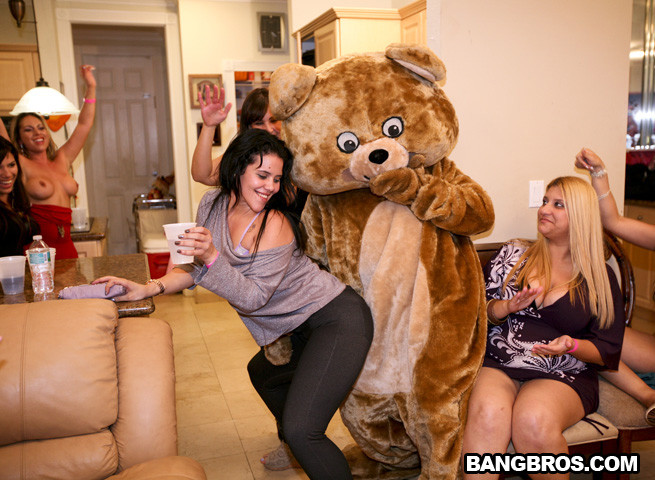 He covered with a lid upholstered with iron rods. It has a hatch leading to a wooden ladder, and a hole through which a basket of daylight is lowered ration - bread and water - for the prisoner or prisoners who are there contained,” Shmuel explained.
He covered with a lid upholstered with iron rods. It has a hatch leading to a wooden ladder, and a hole through which a basket of daylight is lowered ration - bread and water - for the prisoner or prisoners who are there contained,” Shmuel explained.
“We must think of something to help the poor innkeeper,” muttered Rabbi Aryeh Leib.
2
Rabbi Arye Leib settled down in Shmuel's house in a comfortable private room where he could calmly pray, study and teach children. Most pleased with this Shmuel, and when he had time, he came to the "class" and listened to the lessons. By at night, when everyone was asleep, he stood for a long time under the door of the Rabbi's room and listened pleasant melodious voice of the tenant, when he read the Psalms or taught Talmud.
A few nights before the festival, when Shmuel stood outside the door of the room teacher, he suddenly heard the extraordinary sounds of music! Did it seem to him or were there really violin sounds? Maybe he was sleeping? No, that's right, it was real Kazachok dance music! Then - Mazurka! and then - undoubtedly Polka! Moreover, it also seemed to him that he heard the footsteps and steps of every dance! How strange. ..
..
The next morning, Rabbi Arye Leib did not show what happened that night something unusual. Shmuel did not have the courage to ask the Rabbi about happened last night. Maybe he just dreamed it.
But the "dream" was repeated on the second and then on the third night!
The next morning - it was the day before the celebration of the birthday - Rabbi Arye Leib asked Shmuel to prepare for him a long strong rope.
“Today, with God’s help, we will fulfill Mitzvah Pidyon Shvuim" - said he confided to Shmuel.
Exactly at midnight, the two of them came to the landowner's yard. His mansion was flooded lights, and you could hear the sounds of music and the voices of drunken guests. However, outside everything was quiet and dark.
Shmuel went to the barn and then to the hatch, closed with a padlock. He tied rope to the iron rod and helped the Rabbi down through the hole. Innkeeper he was terribly frightened, but the Rabbi quickly calmed him down.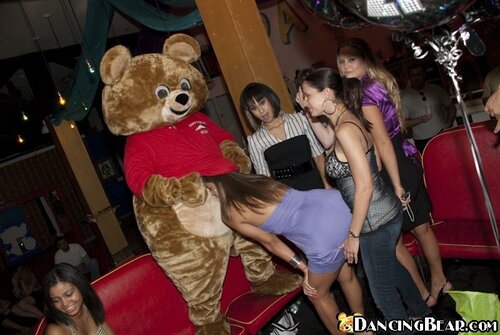
“Shh, be quiet, don't make noise or ask questions,” he said. - Come on quickly change clothes; no time to waste!"
When they exchanged clothes, Rabbi Arye Leib leaned over and told the innkeeper climb on his shoulders, after which he, with the help of Shmuel, got out of basement.
“Don't forget to untie the rope and take it with you. And run to the village" - said he.
3
As soon as the innkeeper and Shmuel managed to hide in the dark, Rabbi Arye Leib I heard loud voices, laughter and footsteps.
The landlord's steward entered the barn with a lantern in his hand and accompanied by servants. They opened the hatch and ordered the innkeeper to get up. They handed him a bearish skin. “Get in it,” the manager said.
They led the "bear" into a large noisy hall, where the landowner and his guests looking forward to the big show.
The master asked for attention to announce the conditions of the competition.
“My friends! he said solemnly. - If the "bear" suits us well performance and will really please my distinguished guests, I will reward him freedom. But if you're disappointed, I'll reward you with the spectacle of twenty blows that this Jew will receive on his bare back. And then we'll throw it to dogs to learn how to dance!
- If the "bear" suits us well performance and will really please my distinguished guests, I will reward him freedom. But if you're disappointed, I'll reward you with the spectacle of twenty blows that this Jew will receive on his bare back. And then we'll throw it to dogs to learn how to dance!
If the "bear" wins the match, then he has the right to demand special prize - whatever his heart desires! You, my friends, will be the judges and tell me who should be declared the winner.
Then he asked his guests which of them would agree to enter the competition.
A young landowner who was considered the best dancer in the area stepped forward and offered to lead a bear dance. He looked confident that despite a large amount of wine he drank, he will be able to arrange an excellent performance.
The guests clapped their hands as the young aristocrat grabbed the leash and the musicians hit "Kazachka".
The young landowner started dancing like a real dancer, but the “bear” is definitely imitate his movements. The guests warmly applauded both.
The guests warmly applauded both.
After that the musicians played Polka. And again the "bear" followed the dancer accurately. The young landowner began to make mistakes, and the "bear" began to dance better him. Now all the applause went to the "bear".
When the musicians played the mazurka, the landowner was no longer able to lead the dance. He made one wrong move after another. Every time he was wrong The "bear" slapped him on the shoulder, which made him even more embarrassed. After after several such slaps the young landowner stumbled and fell heavily to the floor. The "bear" sat on him and crushed him to the ground.
Bravo! Bravo!" shouted the excited guests.
The owner, rather embarrassed, approached the "bear" sitting astride his guest, and said: “Get off him. I free you from prison!"
"That's not all, Your Honor," the "bear" replied.
"Not all!" repeated the loud chorus of the guests.
“I cancel your debts,” the landowner added.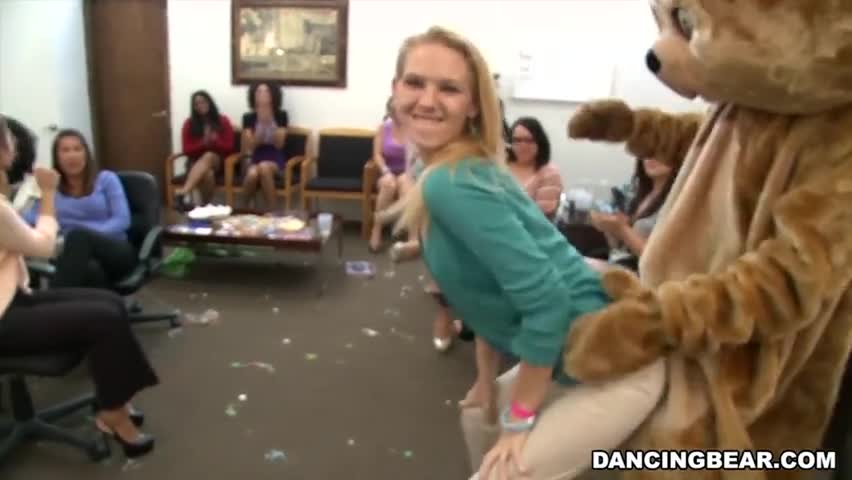
"Not all, Your Honor!"
"Not all!" - thundered guests.
“What else do you want? Haven't I already rewarded you enough?" - indignant landowner.
“For me, Your Honor, the reward is quite sufficient. But what have I done for all those who suffer in prison? What about the worries of the wife and the crying of the children?
“Okay. I will return the tavern to you and lease it to you for the next two years. Is that enough for you now?"
“Good,” said the “bear,” getting up and helping his opponent up the unsteady legs.
Accompanied by loud applause, the "bear" came to the door. Not looking on the raging public, Zeyd's Spöler threw off his bearskin and went out.
He went to Shmuel's house, where a grateful innkeeper.
Both Shmuel and the innkeeper were happy to see that the Rabbi did not suffered from the bear dance.
He told them the amazing news that the landowner canceled all debts and restored the right to rent a tavern for two years in advance! They all thanked Almighty for a happy turn of events.
Zeid's spoller and the innkeeper changed clothes again. The dawn of the morning has come when Zeida's spoler was ready to leave. He took his bundle and basket, blessed Shmuel and the innkeeper faithfully follow the paths of the Torah and Mitzvos and wished them Khatzloho (good luck). They accompanied the holy Tzadik to the edge of the village and parted. And then the sun shone and illuminated his path.
Post Views: 13
Dancing bears in Belitsa park, Bulgaria.
Whenever a person shows interest in someone else's situation in which he should not do it, you can often hear the expression "mind your own business." The way it is said in the Balkans literally translates into "What are you staring at?! Is that a dancing bear?" The origin of this phrase is closely related to the story that follows it, the story of the Dancing Bear of Belitsa Park, so keep reading!
Photo Credits © Klearchos Kapoutsis / Flickr Since the early 1990s, bears have been used as a small scale "walking circus" around the Balkans.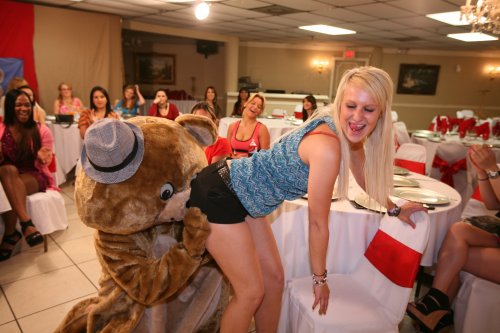 The musician played music - violin or accordion, and the bear "danced". This show will gather a lot of people and many of them will pay money to see this "talented dancing bear" phenomenon. Of course, there is an ugly truth behind this performance. The way the bears were taught to dance to the tunes was nothing short of brutal torture. Touching them with hot irons, pushing them with needles, hitting them, even alcohol, were part of their "training" process. Fortunately, this treatment of bears was declared "illegal" in 1998 year. Since 2000, an organization called "Four Paws" has begun to address this problem of offended bears in the Balkans.
The musician played music - violin or accordion, and the bear "danced". This show will gather a lot of people and many of them will pay money to see this "talented dancing bear" phenomenon. Of course, there is an ugly truth behind this performance. The way the bears were taught to dance to the tunes was nothing short of brutal torture. Touching them with hot irons, pushing them with needles, hitting them, even alcohol, were part of their "training" process. Fortunately, this treatment of bears was declared "illegal" in 1998 year. Since 2000, an organization called "Four Paws" has begun to address this problem of offended bears in the Balkans.
Dancing Bears Park Belitsa
Belitza, Bulgaria, 2780 Belitsa, Bulgaria "Four paws" decided to settle the rescued bears in a forest park near Belitsa. Belitsa is a small town in southwestern Bulgaria, located in the municipality of Belitsa, Blagoevgrad Governorate. It is located 170 km south of the capital Sofia. You can visit the park, which is important to remember that this is not a zoo. It is a refuge and rest home for former dancing bears. The park is located at an altitude of more than 120,000 square meters of forest in the Rila Mountains, at an altitude of 1345 meters. There is an information and medical center on the territory. This area is protected by a fence, namely, encircled by a 3 km long fence, is the natural habitat of the bear. Feeding is meant to mimic their natural habitat, which is why staff hide food at the site so the bears exercise their natural instincts. All bears have names so when you visit this park you will meet Monty, Violeta, Gabriela and 20 other wonderful brown bears.
It is located 170 km south of the capital Sofia. You can visit the park, which is important to remember that this is not a zoo. It is a refuge and rest home for former dancing bears. The park is located at an altitude of more than 120,000 square meters of forest in the Rila Mountains, at an altitude of 1345 meters. There is an information and medical center on the territory. This area is protected by a fence, namely, encircled by a 3 km long fence, is the natural habitat of the bear. Feeding is meant to mimic their natural habitat, which is why staff hide food at the site so the bears exercise their natural instincts. All bears have names so when you visit this park you will meet Monty, Violeta, Gabriela and 20 other wonderful brown bears.
In the past, they were usually kept chained 24 hours a day in a small room, fed sugar and alcohol to improve their "performance".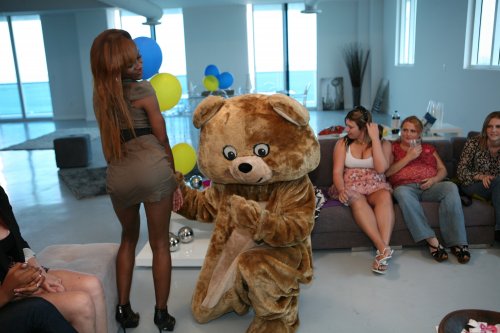
 I'm talking about my life with the circus as an example for a business advice book. I worked for the Clyde Beatty-Cole Bros. Circus as marketing director, tour booking agent, and dancing bear, traveling 10 months a year throughout the eastern half of the United States, for six years. Of all the challenges in all the jobs in my career-including interviews with lions, tigers, and bears-writing my first book was one of the toughest.
I'm talking about my life with the circus as an example for a business advice book. I worked for the Clyde Beatty-Cole Bros. Circus as marketing director, tour booking agent, and dancing bear, traveling 10 months a year throughout the eastern half of the United States, for six years. Of all the challenges in all the jobs in my career-including interviews with lions, tigers, and bears-writing my first book was one of the toughest. My bump jarred me into a new career. The Internet threatened to make my entertainment company for corporate events irrelevant. The aspect of my business that set me apart from my competition became the albatross around the neck of my success. Booking sophisticated club bands was my hallmark; it was the club bands that got websites, rose as independent entities, and promoted themselves to corporate buyers, my clients, through new technology.
My bump jarred me into a new career. The Internet threatened to make my entertainment company for corporate events irrelevant. The aspect of my business that set me apart from my competition became the albatross around the neck of my success. Booking sophisticated club bands was my hallmark; it was the club bands that got websites, rose as independent entities, and promoted themselves to corporate buyers, my clients, through new technology.  The best credential is a book. If the book gets wide media attention, the speaker fee goes up incrementally. I'm a good journalistic writer, but writing a book is a whole different ballgame. It's the world series of writing. Writing a print-on-demand book, the newest trend in the publishing industry, is extra hard because the writer doesn't have the editorial support system that a traditional publisher offers. I chose the print-on-demand vehicle because I wanted to control that the book would actually be published.
The best credential is a book. If the book gets wide media attention, the speaker fee goes up incrementally. I'm a good journalistic writer, but writing a book is a whole different ballgame. It's the world series of writing. Writing a print-on-demand book, the newest trend in the publishing industry, is extra hard because the writer doesn't have the editorial support system that a traditional publisher offers. I chose the print-on-demand vehicle because I wanted to control that the book would actually be published. No party can have more power than the other. Employees exchange time, knowledge, and effort for money from employers. Both parties owe each other respect.
No party can have more power than the other. Employees exchange time, knowledge, and effort for money from employers. Both parties owe each other respect. 



